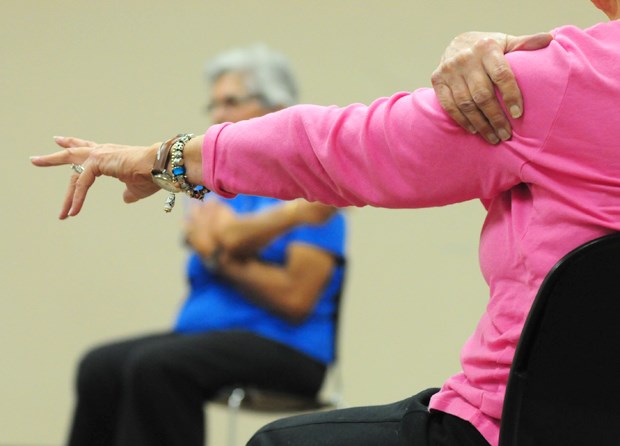February is designated as heart and stroke awareness month in Canada.
In the last month I have had one older friend suffer from a heart attack and one from a stroke which made me think seriously about the risks of heart disease and stroke.
The Heart and Stroke Foundation defines heart disease as a general term, that means the heart is not working properly. They say that some forms of heart disease are present at birth while others develop as we age. As my personal experience attests, and from the research I have done, for older people heart disease and strokes are clearly an issue and concern.
According to the Canadian government’s website: “Cardiovascular disease or heart disease is the number one killer in Canada. It is also the most costly disease in Canada, putting the greatest burden on our national health-care system.”
The website also states that a number of factors, individually or in combination, can lead to heart disease: smoking; diets rich in saturated fat; physical inactivity; stress; a family history of heart disease; and being overweight. Medical conditions such as high blood pressure, high blood cholesterol, obesity and diabetes are also potent risk factors. When we age we are more likely to develop risk factors such as high blood pressure, high cholesterol and becoming overweight.
However, we can make healthy lifestyle choices which may prevent heart disease. According to Consumer Reports On Health’s November 2017 issue, a study states that “Lifestyle is probably the most import thing out there and may often be more potent that medications.”
Choices we could make include quitting smoking, eating a wide variety of foods and reducing the consumption of fast food and other fat clogging foods, getting moving and having regular medical checkups.
The Canadian government’s website points out the link between smoking and heart disease, showing that smoking increases your risk of developing heart disease, stroke and common cancers. Quitting is sometimes very problematic for seniors but perhaps getting some help from your doctor or calling the pan-Canadian quitline toll-free at 1-866-366-3667 could be of help.
Eating a wide variety of foods such as fruits, vegetables, low-fat dairy, fatty fish, nuts, seeds and legumes can help reduce the risk of a strokes and heart disease. The July 2018 Consumer Reports On Health suggests eating cruciferous vegetables such as broccoli, brussels sprouts (not just at turkey feasting times), cabbage and cauliflower seem to be the most beneficial veggies. Choosing lower-fat foods more often helps as well. Avoid fad or miracle diets.
Most research shows that exercise is key to reducing risk factors. In the Lancet study they found more than one-third of strokes could be prevented by exercise. “People who exercise at least four times a week are about 20 per cent less likely to have a stroke than couch potatoes.”
The Canadian government’s website suggests that getting as little as 60 minutes a day of accumulated physical activity will help keep your heart in shape. Eating well and exercising will help control your weight.
If you have any concerns about your heart health, be sure to ask your doctor. Having regular medical checkups that include measurement of blood cholesterol are important.
It is important to know the signs of a stroke or heart attack. According to the Heart and Stroke organization, signs of a heart attack include chest discomfort, upper body discomfort, sweating, lightheadedness, shortness of breath and nausea. These can vary in men and women. The signs of a stroke include sudden numbness or weakness in the face, arm, or leg, especially on one side of the body, sudden confusion, trouble speaking, or difficulty understanding speech, sudden trouble seeing in one or both eyes, sudden trouble walking, dizziness, loss of balance, or lack of co-ordination.
If, like my friends, you’ve had a heart attack or stroke, it is important to get care after either of these events. Research by Consumer Reports On Health states that these programs can reduce the risk of a return to hospital within a year by 31 per cent. The North Shore Stroke Recovery Centre is a good place to start if you have had a stroke, and Lions Gate Hospital and seniors and recreation centres offer programs for cardiac rehabilitation.
Let’s stay heart healthy everyone.
Margaret Coates is the co-ordinator of Lionsview Seniors’ Planning Society. She has lived on the North Shore for 48 years and has worked for and with seniors for 20 of those years. Ideas for future columns are welcome Email: [email protected]



